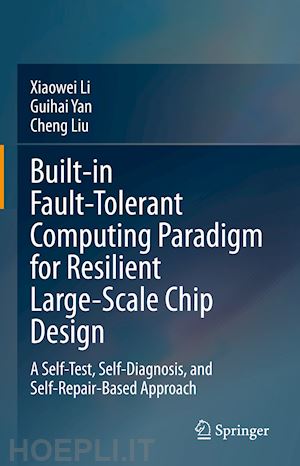
Questo prodotto usufruisce delle SPEDIZIONI GRATIS
selezionando l'opzione Corriere Veloce in fase di ordine.
Pagabile anche con Carta della cultura giovani e del merito, 18App Bonus Cultura e Carta del Docente
This book is the outcome of extensive fault-tolerant computing research pursued at the State Key Lab of Processors, Institute of Computing Technology, Chinese Academy of Sciences over the past decade. The proposed built-in on-chip fault-tolerant computing paradigm has been verified in a broad range of scenarios, from small processors in satellite computers to large processors in HPCs. Hopefully, it will provide an alternative yet effective solution to the growing reliability challenges for large-scale VLSI designs.











Il sito utilizza cookie ed altri strumenti di tracciamento che raccolgono informazioni dal dispositivo dell’utente. Oltre ai cookie tecnici ed analitici aggregati, strettamente necessari per il funzionamento di questo sito web, previo consenso dell’utente possono essere installati cookie di profilazione e marketing e cookie dei social media. Cliccando su “Accetto tutti i cookie” saranno attivate tutte le categorie di cookie. Per accettare solo deterninate categorie di cookie, cliccare invece su “Impostazioni cookie”. Chiudendo il banner o continuando a navigare saranno installati solo cookie tecnici. Per maggiori dettagli, consultare la Cookie Policy.